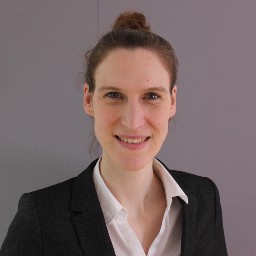 |
Intelligent Process Controls (IPC) is a subgroup of the Machine Beam Controls (MSK) group at DESY, pushing forward innovative research into autonomous accelerators using reinforcement learning and other cutting-edge optimization techniques. IPC is also engaged in developing advanced feedbacks and enhancing fault diagnosis and anomaly detection through machine learning. By bringing together an exceptional interdisciplinary team of experts from control theory, computer science and physics, IPC aims to solve some of the most challenging problems facing particle accelerators today and in the future, including increasing their availability and developing autonomous accelerators. With a strong connection to academia and an unwavering commitment to forward developments in this field, IPC remains at the forefront of groundbreaking research and technology advancement. |
Publications
- Learning to Do or Learning While Doing: Reinforcement Learning and Bayesian Optimisation for Online Continuous Tuning: Jan Kaiser et al., arXiv, doi: 10.48550/arXiv.2306.03739
- Predictive Maintenance for the Optical Synchronization System of the European XFEL: A Systematic Literature Survey: Arne Grünhagen et al., BTW2023 - Datenbanksysteme für Business, Technologie und Web, doi: 10.18420/BTW2023-70
- Anomaly detection at the European X-ray Free Electron Laser using a parity-space-based method: Annika Eichler et al., Physical Review Accelerators and Beams, doi: 10.1103/PhysRevAccelBeams.26.012801
- Application of Machine Learning in Longitudinal Phase Space Prediction at the European XFEL: Zihan Zhu et al., Proceedings of the 40th International Free Electron Laser Conference (FEL2022), doi: https://indico.jacow.org/event/44/contributions/545/
- Convex Synthesis of Robust Distributed Controllers for the Optical Synchronization System at European XFEL: Maximilian Schütte et al., 2022 IEEE Conference on Control Technology and Applications (CCTA), doi: 10.1109/CCTA49430.2022.9966114
- Learning-based Optimisation of Particle Accelerators Under Partial Observability Without Real-World Training: Jan Kaiser et al., Proceedings of the 39th International Conference on Machine Learning, doi: https://proceedings.mlr.press/v162/kaiser22a.html
- Accelerating Linear Beam Dynamics Simulations for Machine Learning Applications: Oliver Stein et al., Proceedings of the 13th International Particle Accelerator Conference, doi: 10.18429/JACoW-IPAC2022-WEPOMS036
- Decentralized Output Feedback Control using Sparsity Invariance with Application to Synchronization at European XFEL: Maximilian Schütte et al., 2021 60th IEEE Conference on Decision and Control (CDC), doi: 10.1109/CDC45484.2021.9683027
- Fault Analysis of the Beam Acceleration Control System at the European XFEL using Data Mining: Arne Grünhagen et al., 2021 IEEE 30th Asian Test Symposium (ATS), doi: 10.1109/ATS52891.2021.00023
- First Steps Toward an Autonomous Accelerator, a Common Project Between DESY and KIT: Annika Eichler et al., Proceedings of the 12th International Particle Accelerator Conference, doi: 10.18429/JACoW-IPAC2021-TUPAB298
- Machine Learning Based Spatial Light Modulator Control for the Photoinjector Laser at FLUTE: Chenran Xu et al., Proceedings of the 12th International Particle Accelerator Conference, doi: 10.18429/JACoW-IPAC2021-WEPAB289
Team Members
| Lynda Boukela | Scientific areas: accelerator | |
 |
Annika Eichler | Scientific areas: accelerator |
| Arne Grünhagen | Scientific areas: accelerator | |
 |
Nur Zulaiha Jomhari | Scientific areas: accelerator |
 |
Jan Kaiser | Scientific areas: accelerator |
| Maximilian Schütte | Scientific areas: accelerator |
Project Partner

|